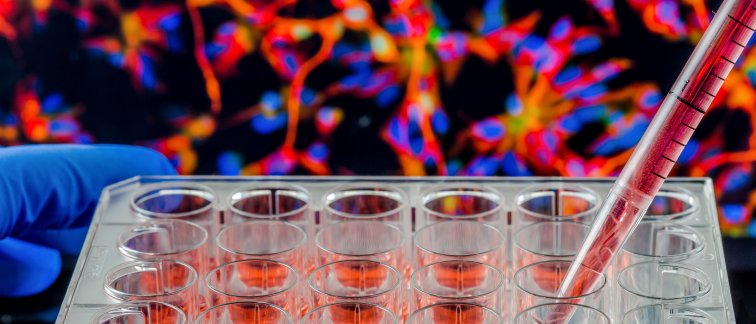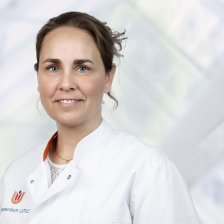Achilles had only one weakness, but cancer has many which we aim to uncover and exploit
About this Theme
Innovative therapeutic opportunities lie in exploiting synthetic and collateral lethality, as well as the cross-talk between cancer cells and their microenvironment. Importantly, molecular differences between individual patients require personalized treatment approaches, whereas intra-tumoral heterogeneity and primary or acquired drug-resistance demands development of novel strategies such as combination therapies.
This theme is about identification of novel targets and drugs to translate into clinical trials and applications.
Novel therapeutic targets are identified by descriptive and functional genomics approaches, by molecular and functional analysis of signaling pathways, and by focused as well as unbiased genome-wide RNA interference and CRISPR functional genomic screens. Chemical and biological inhibitors of candidate targets are tested in a preclinical setting, employing cell lines, primary patient material, patient-derived organoids and xenografts, as well as transgenic animal models. In addition, innovative cell (co-)culture models are employed which closely mimic the in vivo situation, yet allowing high-throughput approaches.
Key Strengths
Reflecting the strong translational research signature of the CCA, Target & Therapy Discovery is a large theme, bringing together researchers who are also actively involved in other themes. It forms the translational bridge between the fundamental and clinical themes, and provides a platform for fruitful collaborations in an environment that promotes the exchange of expertise, technologies and new developments. The key strength of Target & Therapy Discovery is combining state-of-the-art screening methods for druggable targets with innovative preclinical models for therapy development, all in close interaction with clinical departments. These close connections warrant the availability of primary patient material for basic research and provide strong incentives to translate laboratory findings to the clinic and vice versa.
Research Lines
Covering most major solid and hematological cancer types with an emphasis on target discovery, drug discovery, therapy resistance and preclinical therapy development, research lines of the Target & Therapy Discovery theme include:
- Cancer immunology
- Tumor microenvironment
- Stem cells
- Cancer heterogeneity & clonal dynamics
- (Oncogenic) Signaling pathways
- Cell adhesion and migration
- Cell death regulation
- Cell metabolism
- Functional genomics
- Gene regulation & genome organization
- Chromosome instability & DNA damage (repair)
- Radiobiology
Theme Leaders
Principal Investigators
- Dr. Joke den Haan
- Dr. Esther Hulleman
- Dr. Jan Koster
- Dr. David Noske
- Dr. Arnold Spek
- Dr. Rutger Jan Swijnenburg
- Dr. Victor Thijssen
- Dr. Rubina Baglio
- Dr. Hans Crezee
- Dr. Jeroen Guikema
- Dr. Jeroen Janssen
- Dr. Linda Smit
- Dr. Gerben Vader
- Prof. Marjolein van Egmond
- Prof. Thomas van Gulik
- Prof. Mette Hazenberg
- Prof. Harry Hendrikse
- Prof. Connie Jimenez
- Prof. Jan Paul Medema
- Prof. Martijn Meijerik
- Prof. Jeroen van Moorselaar
- Prof. Godefridus Peters
- Prof. Noortje Swart
- Prof. Louis Vermeulen
- Prof. Marc van de Vijver
- Prof. Hans van der Vliet
- Prof. Mark van de Wiel
- Prof. Hanneke Wilmink
- Prof. Philip de Witt Hamer
- Prof. Sonja Zweegman
- Dr. Petra Kok
- Dr. Nicolas Leveille
- Dr. Tom Seijkens
- Dr. Sarah Derks
- Dr. Suzanne Gisbertz
- Dr. Heinz-Josef Klümpen
- Dr. Job de Lange
- Dr. Luc van Lonkhuijzen
- Prof. Victor van Beusechem


